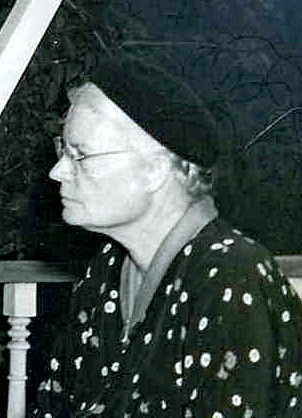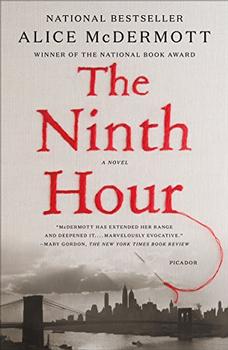Summary | Excerpt | Reading Guide | Reviews | Beyond the book | Read-Alikes | Genres & Themes | Author Bio

A Novel
by Alice McDermottA riveting account of women's lives on the margins of the Vietnam War, from the renowned winner of the National Book Award.
You have no idea what it was like. For us. The women, I mean. The wives.
American women—American wives—have been mostly minor characters in the literature of the Vietnam War, but in Absolution they take center stage. Tricia is a shy newlywed, married to a rising attorney on loan to navy intelligence. Charlene is a practiced corporate spouse and mother of three, a beauty and a bully. In Saigon in 1963, the two women form a wary alliance as they balance the era's mandate to be "helpmeets" to their ambitious husbands with their own inchoate impulse to "do good" for the people of Vietnam.
Sixty years later, Charlene's daughter, spurred by an encounter with an aging Vietnam vet, reaches out to Tricia. Together, they look back at their time in Saigon, taking wry account of that pivotal year and of Charlene's altruistic machinations, and discovering how their own lives as women on the periphery—of politics, of history, of war, of their husbands' convictions—have been shaped and burdened by the same sort of unintended consequences that followed America's tragic interference in Southeast Asia.
A virtuosic new novel from Alice McDermott, one of our most observant, most affecting writers, about folly and grace, obligation, sacrifice, and, finally, the quest for absolution in a broken world.
McDermott seems interested in writing about degrees of marginality, of guilt, and of goodness. The women endure their husbands' sexist jokes and the patronizing attitudes of male doctors they often work alongside in their mission to provide relief to the ill; yet they themselves tend to otherize the Vietnamese people, despite their best intentions. And of course there's the bigger picture: the reason the Americans are "cocooned" in the country in the first place is an unstable mixture of quixotic democratic fervor and pure greed. Absolution takes a thought-provoking fresh perspective on a much-fictionalized chapter of history, which is best represented by the fact that it elides John F. Kennedy's assassination and focuses instead on when the First Lady gave birth to a stillborn child and was the last person to find out about it after the media quickly broke the story. "You have to understand what it was like in those days," Tricia writes, "for us, the wives."..continued
Full Review
(704 words)
This review is available to non-members for a limited time. For full access,
become a member today.
(Reviewed by Jacob Lenz-Avila).
 Alice McDermott's novel about the humanitarian efforts of American corporate wives living in Vietnam in the early '60s, Absolution, takes a detour to New York City in the previous decade, where Tricia, the protagonist, and her radicalized friend Stella participate in sit-ins against the compulsory Cold War duck-and-cover drills.
Alice McDermott's novel about the humanitarian efforts of American corporate wives living in Vietnam in the early '60s, Absolution, takes a detour to New York City in the previous decade, where Tricia, the protagonist, and her radicalized friend Stella participate in sit-ins against the compulsory Cold War duck-and-cover drills.
In 1954, the U.S. Federal Civil Defense Agency inaugurated an annual civil defense preparedness drill, dubbed Operation Alert, in which everyone in big cities ("target areas"), like New York, was instructed to duck and cover for fifteen minutes, ostensibly to practice bracing themselves for an attack from the Soviet Union. During that same interval, federal alert systems throughout the country were tested, ...
This "beyond the book" feature is available to non-members for a limited time. Join today for full access.

If you liked Absolution, try these:

by Kristin Hannah
Published 2024
From master storyteller Kristin Hannah, #1 New York Times bestselling author of The Nightingale and The Four Winds, comes the story of a turbulent, transformative era in America: the 1960s.

by Alice McDermott
Published 2018
Rendered with remarkable lucidity and intelligence, Alice McDermott's The Ninth Hour is a crowning achievement of one of the finest American writers at work today
The secret of freedom lies in educating people, whereas the secret of tyranny is in keeping them ignorant
Click Here to find out who said this, as well as discovering other famous literary quotes!